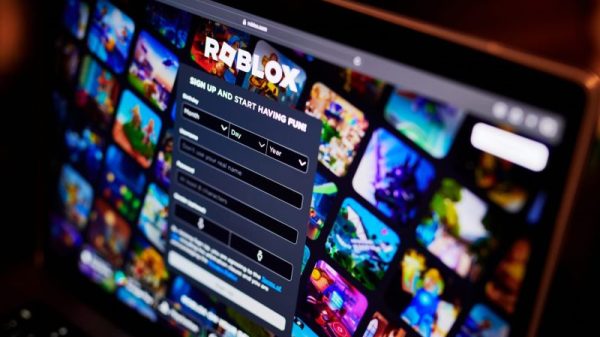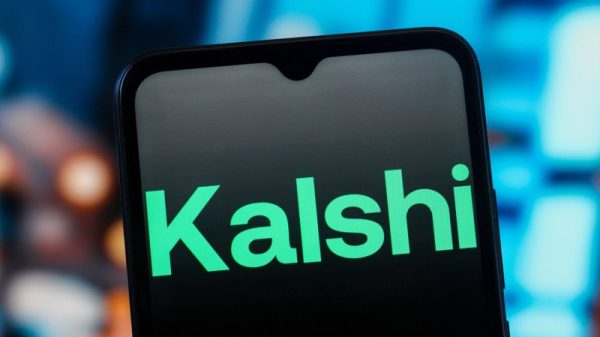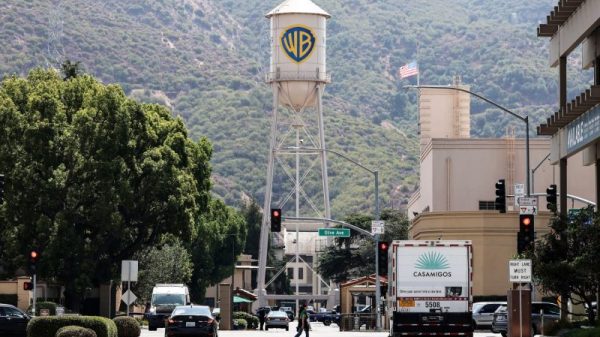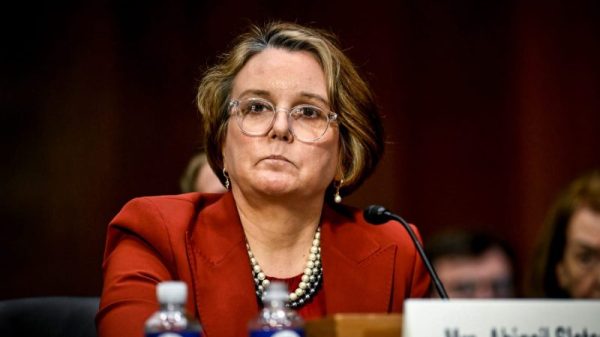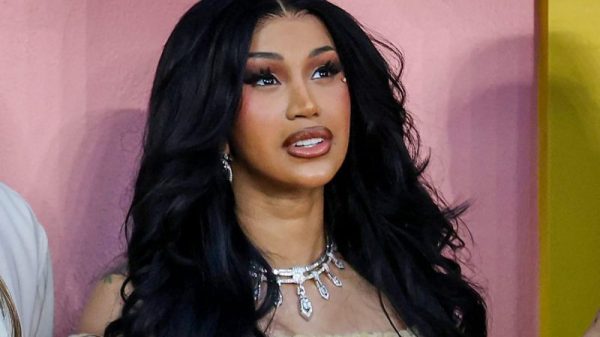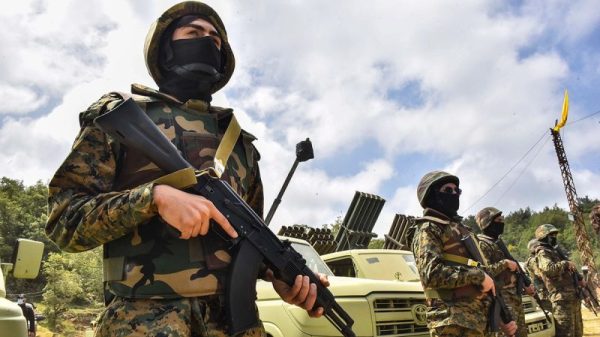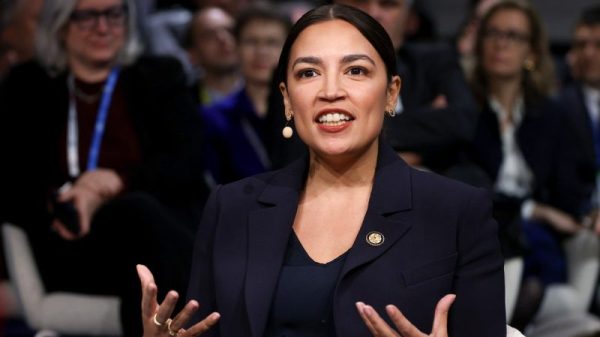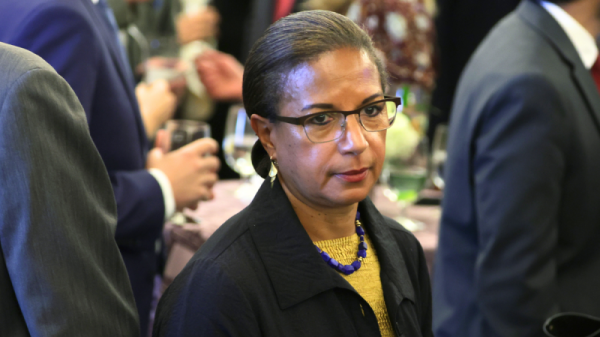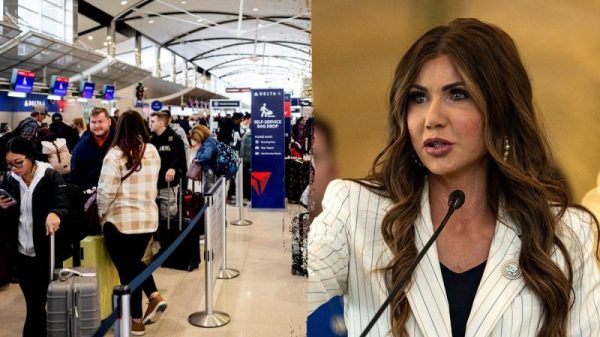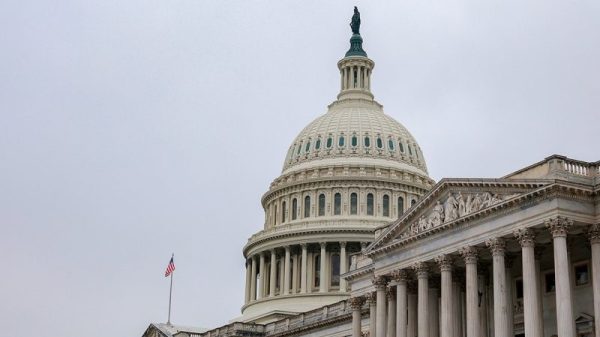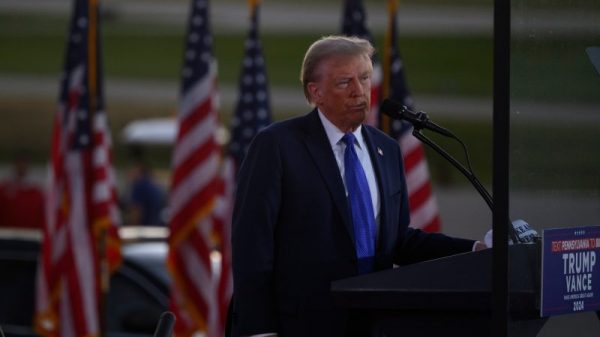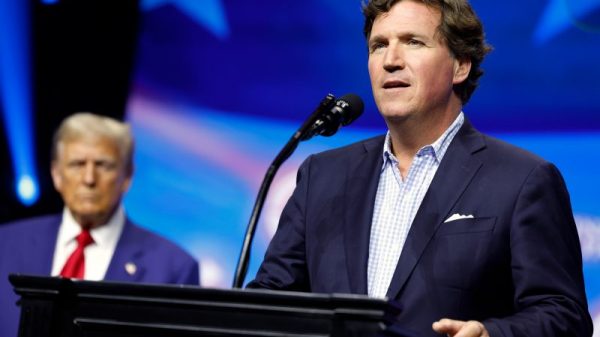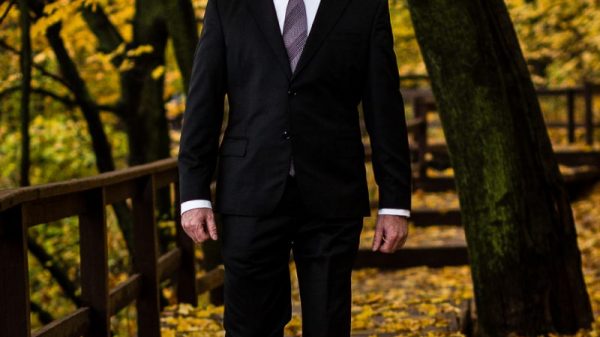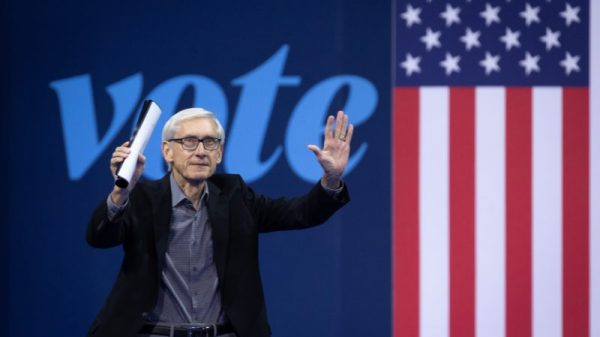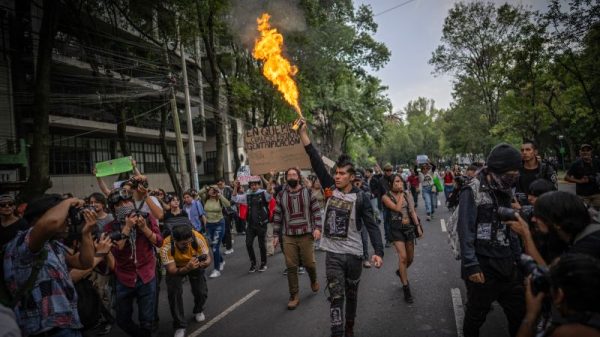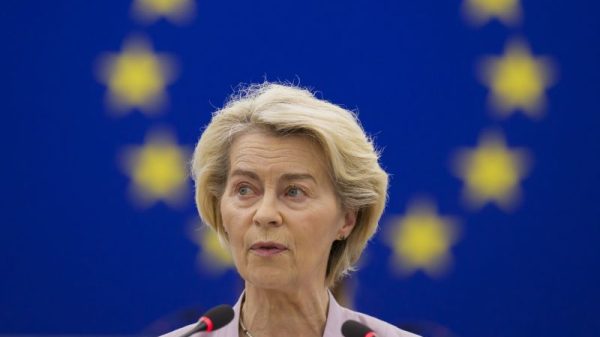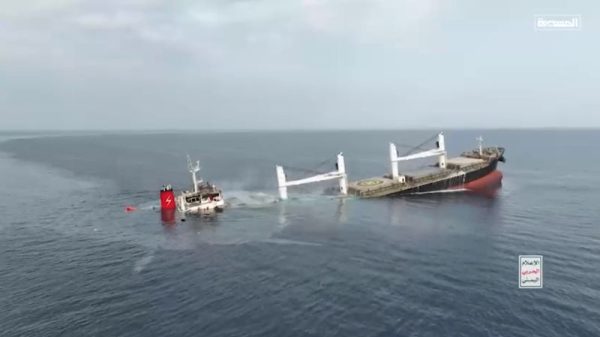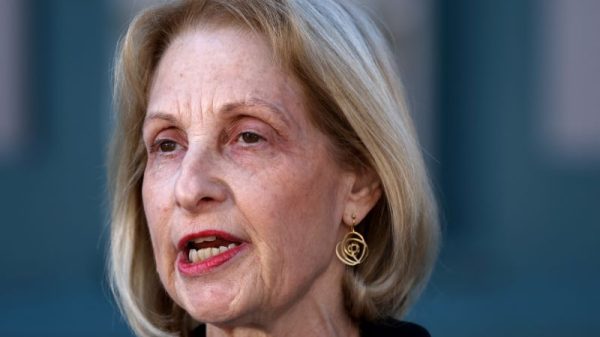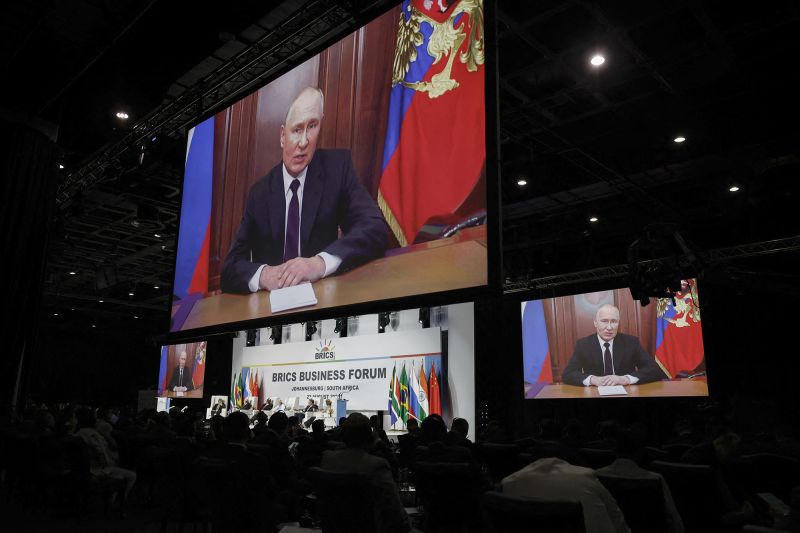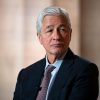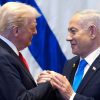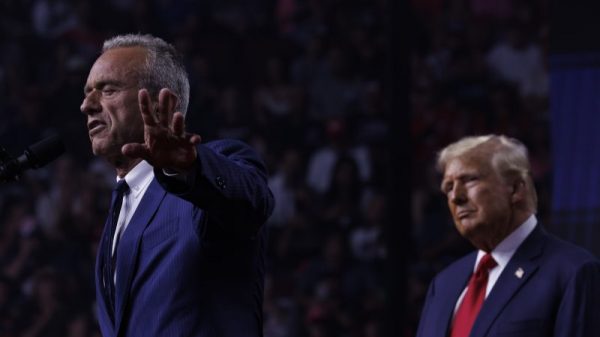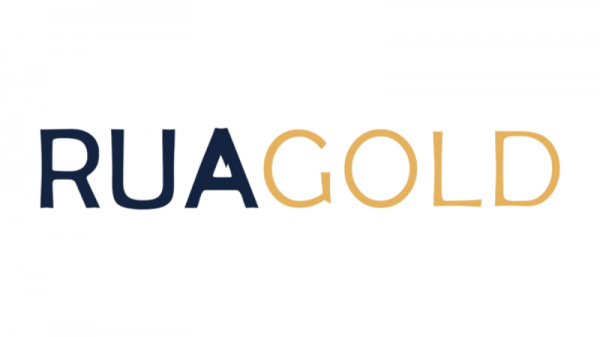Nearly three years after Russia’s invasion of Ukraine saw Moscow condemned by countries globally, leader Vladimir Putin is staging a summit with more than a dozen world leaders – in a pointed signal from the autocrat that far from being alone, an emerging coalition of countries stands behind him.
The three-day BRICS summit, starting Tuesday in the southwestern Russian city of Kazan, is the first meeting of the group of major emerging economies Brazil, Russia, India, China and South Africa since it expanded earlier this year to include Egypt, United Arab Emirates, Ethiopia, and Iran.
Leaders expected to attend include China’s Xi Jinping, India’s Narendra Modi, Iran’s Masoud Pezeshkian, South Africa’s Cyril Ramaphosa as well as those from outside the club, like Turkish President Recep Tayyip Erdogan. Brazilian President Luiz Inacio Lula da Silva was expected to join but canceled his trip after suffering an injury at home.
Set to be by far the largest international gathering the Russian president has hosted since the start of the war in February 2022, the gathering of BRICS and other countries this week spotlights a growing convergence of nations who hope to see a shift in the global balance of power and – in the case of some, like Moscow, Beijing and Tehran – directly counter the United States-led West.
It’s this latter message that Putin – and close partner and most powerful BRICS country leader Xi – will project in the coming days: it’s the West that stands isolated in the world with its sanctions and alliances, while a “global majority” of countries support their bid to challenge American global leadership.
In remarks to reporters Friday, Putin hailed the growing economic and political clout of BRICS countries as an “undeniable fact” and said that if BRICS and interested countries work together, they “will be a substantial element of the new world order” – though he denied the group was an “anti-Western alliance.”
Putin’s messaging this week will be all the more poignant as the meeting comes just days ahead of the US elections, where a potential victory for former President Donald Trump could see the US shift its staunch support of Ukraine and strain Washington’s ties with its traditional allies more broadly.
“This BRICS summit is really a gift (for Putin),” said Alex Gabuev, director of the Carnegie Russia Eurasia Center in Berlin. “The message will be: how can you talk about Russia’s global isolation when (all these) leaders … are coming to Kazan.”
Russia wants to portray BRICS “as the spearhead, the new organization that leads us all as a global community to a more just order,” Gabuev said.
But despite Russia’s sweeping rhetoric, the leaders meeting in Kazan have a wide range of viewpoints and interests – a reality of BRICS that observers say limits their ability to send a unified message – especially the kind Putin may desire.
Global crises
The Russian-hosted gathering poses a sharp contrast to last year’s BRICS summit in Johannesburg, when Putin participated from the other side of a video screen – unable to attend in person due to an arrest warrant from the International Criminal Court for alleged war crimes over Ukraine.
This year, the Russian president is at the helm of the first summit since the organization nearly doubled in size – and the gathering is playing out before a very different global landscape.
While BRICS is primarily geared toward economic collaboration, its meeting last year took place in the shadow of the war in Ukraine. Now, even as that war rages on, the expanding conflict in the Middle East, where Israel is fighting Iran’s proxies, is also likely to dominate leaders’ conversations.
Putin last week confirmed that Palestinian leader Mahmoud Abbas would join the event. The Russian leader and his officials will likely use the conflict – and the anger across the Global South toward the US and its support for Israel – to press his argument for a new world order without the US at the helm, observers say.
China and Russia have both called for a ceasefire in the spiraling conflict and criticized Israel’s actions, while the US has endorsed Israel’s right to retaliate against militant groups Hamas in Gaza and Hezbollah in Lebanon.
Many attending the summit see the conflict in the Middle East “as a prime example of why this particular grouping of countries should have more influence,” said Jonathan Fulton, an Abu Dhabi-based senior non-resident fellow at the Atlantic Council. However, he said, countries are “using it mostly as a rhetorical point to criticize things they don’t like,” rather than showing interest in leading its resolution.
Observers will also be watching whether China and Brazil use the gathering as a platform to play up their joint six-point peace proposal on the war in Ukraine, as they did at last month’s meeting of the United Nations General Assembly. Then, Ukrainian leader Volodymyr Zelensky slammed the effort, saying such plans would help Moscow, while warning Beijing and Brasilia: “you will not boost your power at Ukraine’s expense.”
Zelensky’s own challenges presenting his “victory plan” to end the war and the impending US elections mean China now has “a tremendous opportunity to beat the drum of its own format (on Ukraine) without sparing too much leverage,” according to Gabuev in Berlin.
The gathering in Kazan also gives Putin ample opportunity for one-on-one facetime with his fellow BRICS leaders and other friendly dignitaries in attendance.
Identity crisis
Leaders over the next few days are expected to discuss how to advance on-going efforts to settle payments outside the US dollar-denominated system using BRICS currencies and banking networks, a system that could have economic benefits, but also helps member countries like Russia circumnavigate Western sanctions. The countries are also likely to look for ways to boost economic, technological and financial cooperation across a range of areas from energy to sharing satellite data.
At the same time, however, they’ll be grappling with the divisions and differing agendas between countries within the group, which observers say limit how much BRICS can achieve.
That’s nothing new for the group, which held its first summit of Brazil, Russia, India and China in 2009 as a convergence of key emerging markets before expanding the following year to include South Africa. In 2015, BRICS launched its New Development Bank, seen as an alternative or supplement to the World Bank and the International Monetary Fund.
Loosely united by a shared interest in reforming the international system to ensure their voices were better represented, BRICS from its start has incorporated countries with deep differences in political and economic systems – as well as other frictions.
India and China, for example, have a long-simmering border conflict, but make up two key pillars of the club. Their divisions have become even more prominent in recent years as China-US have become increasingly fraught, while India and the US have become closer partners.
Today, even as BRICS has again expanded – and the Kremlin says more than 30 additional countries are interested in joining or cooperating with it – deepening geopolitical fault lines further complicate BRICS’ identity and direction, observers say.
“(China and Russia have) essentially tried to shift the group from the sense of (BRICS) being emerging economies to potentially being some sort of an expression of angst with regard to Western dominance,” said Manoj Kewalramani, who heads Indo-Pacific studies at the Takshashila Institution research center in the Indian city of Bangalore.
And new or aspiring members may not be wanting to choose between this vision or the West. Instead, they are looking to grow their economies and “engage non-ideologically and pragmatically,” he said.






